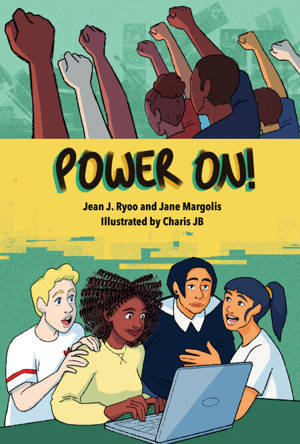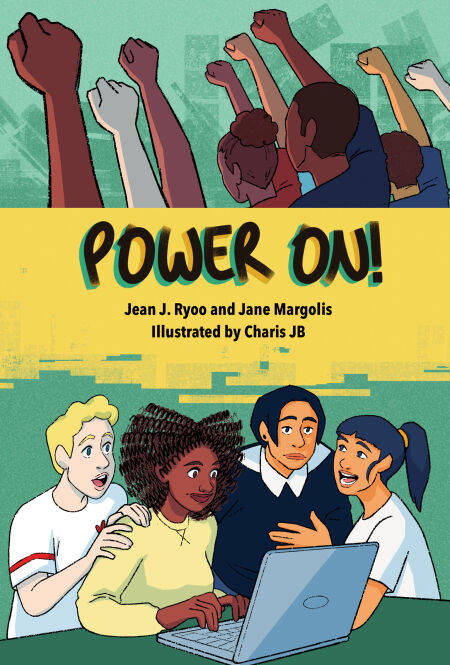
- Afhalen na 1 uur in een winkel met voorraad
- Gratis thuislevering in België vanaf € 30
- Ruim aanbod met 7 miljoen producten
- Afhalen na 1 uur in een winkel met voorraad
- Gratis thuislevering in België vanaf € 30
- Ruim aanbod met 7 miljoen producten
Zoeken
Omschrijving
A diverse group of teenage friends learn how computing can be personally and politically empowering and why all students need access to computer science education.
This lively graphic novel follows a diverse group of teenage friends as they discover that computing can be fun, creative, and empowering. Taylor, Christine, Antonio, and Jon seem like typical young teens—they communicate via endless texting, they share jokes, they worry about starting high school, and they have each other’s backs. But when a racially-biased artificial intelligence system causes harm in their neighborhood, they suddenly realize that tech isn’t as neutral as they thought it was. But can an algorithm be racist? And what is an algorithm, anyway?
In school, they decide to explore computing classes, with mixed results. One class is only about typing. The class that Christine wants to join is full, and the school counselor suggests that she take a class in “Tourism and Hospitality” instead. (Really??) But Antonio’s class seems legit, Christine finds an after-school program, and they decide to teach the others what they learn. By summer vacation, all four have discovered that computing is both personally and politically empowering.
Interspersed through the narrative are text boxes with computer science explainers and inspirational profiles of people of color and women in the field (including Katherine Johnson of Hidden Figures fame). Power On! is an essential read for young adults, general readers, educators, and anyone interested in the power of computing, how computing can do good or cause harm, and why addressing underrepresentation in computing needs to be a top priority.
This lively graphic novel follows a diverse group of teenage friends as they discover that computing can be fun, creative, and empowering. Taylor, Christine, Antonio, and Jon seem like typical young teens—they communicate via endless texting, they share jokes, they worry about starting high school, and they have each other’s backs. But when a racially-biased artificial intelligence system causes harm in their neighborhood, they suddenly realize that tech isn’t as neutral as they thought it was. But can an algorithm be racist? And what is an algorithm, anyway?
In school, they decide to explore computing classes, with mixed results. One class is only about typing. The class that Christine wants to join is full, and the school counselor suggests that she take a class in “Tourism and Hospitality” instead. (Really??) But Antonio’s class seems legit, Christine finds an after-school program, and they decide to teach the others what they learn. By summer vacation, all four have discovered that computing is both personally and politically empowering.
Interspersed through the narrative are text boxes with computer science explainers and inspirational profiles of people of color and women in the field (including Katherine Johnson of Hidden Figures fame). Power On! is an essential read for young adults, general readers, educators, and anyone interested in the power of computing, how computing can do good or cause harm, and why addressing underrepresentation in computing needs to be a top priority.
Specificaties
Betrokkenen
- Auteur(s):
- Illustrator(s):
- Uitgeverij:
Inhoud
- Aantal bladzijden:
- 136
- Taal:
- Engels
Eigenschappen
- Productcode (EAN):
- 9780262367738
- Verschijningsdatum:
- 18/04/2022
- Uitvoering:
- E-book
- Beveiligd met:
- Adobe DRM
- Formaat:
- ePub 3 Fixed Layout

Alleen bij Standaard Boekhandel
+ 19 punten op je klantenkaart van Standaard Boekhandel
Beoordelingen
We publiceren alleen reviews die voldoen aan de voorwaarden voor reviews. Bekijk onze voorwaarden voor reviews.







